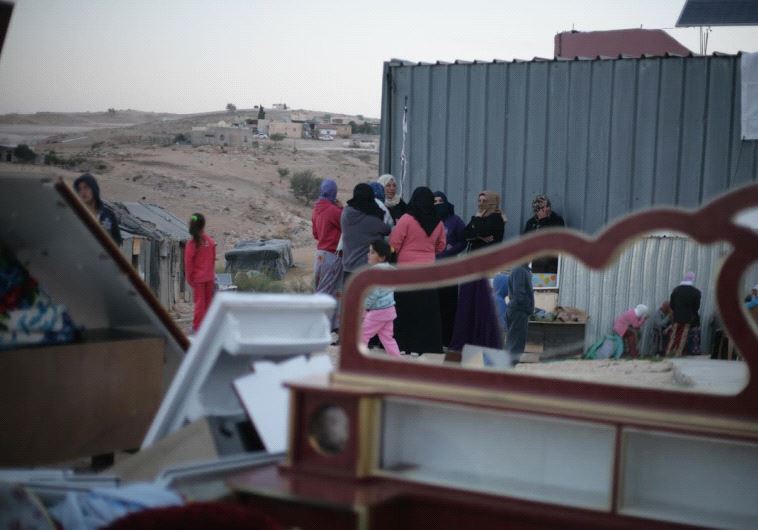After long legal battle Umm-al-Hiran residents anxiously await Israeli demolition
Residents of Umm-al-Hiran have been offered 800-meter plots of land and in the nearby Beduin town of Hura and financial compensation.
 Family gathered around their house which was slated for demolition on Tuesday(photo credit: ELIYAHU KAMISHER)Updated:
Family gathered around their house which was slated for demolition on Tuesday(photo credit: ELIYAHU KAMISHER)Updated: